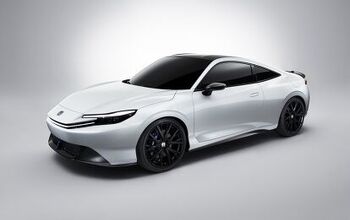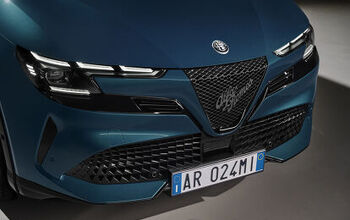Who's Unhappy About Higher Wages, Stronger Currency in China? The Japanese. For Starters

It stands to reason that Japanese car makers would rejoice over rising wages in competing China and over an appreciating Chinese currency. Rising wages make production there more expensive, a rising Yuan makes exports more expensive. Both should give the Japanese more breathing room. That reasoning is falling by the wayside. The Nikkei [sub] reports that these developments pose ”serious threats to Toyota’s profitability in China, strategic challenges that other Japanese companies must also deal with.” Just goes to show that you need to be careful what you wish for. And wait who else should worry.
As chronicled here, Honda and Toyota had to stop the lines because they were left partless by strikes at some of their parts makers.
Over the weekend, the world joined a chorus of “ding-dong, the peg is dead” , after – in a lead-up to the G20 summit – China announced it would be a bit more lenient with their Yuan/Dollar valuation. Today, the USD/CNY official mid-rate stands at 6.7980 vs 6.8275 yesterday, a breathtaking 0.5 percent “bounce.”
So why would that bother the Japanese? Says the Nikkei: “The price of new cars in China is similar to that of Japan. This translates to fat profit margins in China — now the world’s largest auto market — thanks to lower production costs. But rising wages are likely to reduce those margins, warned a Toyota executive.”
That’s just the beginning. Many parts used in worldwide production are made in China. Rising wages and a stronger Chinese currency make those parts more expensive abroad. This is not just a Japanese concern. What’s more, a stronger Yuan makes it cheaper for Chinese companies to import the latest manufacturing machinery from abroad, strengthening their competitive posture in the long run. Students of economic history will remember Germany and Japan.
Foreign automakers with joint ventures in China have short term reasons to be worried. Exports amount to one third of China’s GDP. A stronger currency and higher wages make Chinese exports less competitive in international markets. A more frigid business climate will most certainly result in a cooling-off of China’s red-hot auto market.
“The booming sales that continued until March have gone,” said a Toyota dealer to the Nikkei. “Sales growth could slow further if falls in exports choke economic growth.”
If you think that’s a great problem for Toyota to have, think again: Guess who’s also unhappy about higher wages and a stronger currency in China? General Motors. GM sells more cars in China than in the U.S. The Europeans can take a more sanguine posture: The Euro had dropped so much in value against major currencies that they can shrug off wage increases and an 0.5 percent rise in the Yuan. Volkswagen will “significantly exceed” last year’s results, mostly because of China. One country’s depression is the other country’s euphoria.

Bertel Schmitt comes back to journalism after taking a 35 year break in advertising and marketing. He ran and owned advertising agencies in Duesseldorf, Germany, and New York City. Volkswagen A.G. was Bertel's most important corporate account. Schmitt's advertising and marketing career touched many corners of the industry with a special focus on automotive products and services. Since 2004, he lives in Japan and China with his wife <a href="http://www.tomokoandbertel.com"> Tomoko </a>. Bertel Schmitt is a founding board member of the <a href="http://www.offshoresuperseries.com"> Offshore Super Series </a>, an American offshore powerboat racing organization. He is co-owner of the racing team Typhoon.
More by Bertel Schmitt
Latest Car Reviews
Read moreLatest Product Reviews
Read moreRecent Comments
- Jalop1991 does the odometer represent itself in an analog fashion? Will the numbers roll slowly and stop wherever, or do they just blink to the next number like any old boring modern car?
- MaintenanceCosts E34 535i may be, for my money, the most desirable BMW ever built. (It's either it or the E34 M5.) Skeptical of these mods but they might be worth undoing.
- Arthur Dailey What a load of cow patties from fat cat politicians, swilling at the trough of their rich backers. Business is all for `free markets` when it benefits them. But are very quick to hold their hands out for government tax credits, tax breaks or government contracts. And business executives are unwilling to limit their power over their workers. Business executives are trained to `divide and conquer` by pitting workers against each other for raises or promotions. As for the fat cat politicians what about legislating a living wage, so workers don't have to worry about holding down multiple jobs or begging for raises? And what about actually criminally charging those who hire people who are not legally illegible to work? Remember that it is business interests who regularly lobby for greater immigration. If you are a good and fair employer, your workers will never feel the need to speak to a union. And if you are not a good employer, then hopefully 'you get the union that you deserve'.
- 28-Cars-Later Finally, something possibly maybe worth buying.
- EBFlex The simple fact is very small and cheap ICE vehicles have a range thats longer than all EVs. That is the bar that needs met. And EVs cannot meet that.Of course range matters. But that's one element of many that make EVs completely ineffective at replacing ICE vehicles.































Comments
Join the conversation
On the other hand, car companies will make more profits per car if Chinese currency is appreciating. Lets say GM sells cars in Yuans and makes the equivalent of $2,000 per car in 2010; if Yuan increases by 20%, GM will make 2000 * 1.2 = $2,400 in 2011. Also if purchasing power increases in China, Chineses will have more money to purchase cars. The only entity that is screwed is the US Treasury; who will then purchase its Bonds?
Playwright Jocelyn Bioh is a first-generation American whose parents emigrated from Ghana in Africa. This sparkling comedy was inspired by her mother’s experience in an elite boarding school there in 1986, as students prepare to enter the Miss Ghana pageant and a chance to be Miss Universe. Paulina, queen bee of the in-crowd, assumes she’ll win. But when Ericka enrolls, Paulina’s popularity plummets. The girls find out if beauty really is skin deep in this new, critically acclaimed, and award-winning play that sold-out two runs Off-Broadway last season.